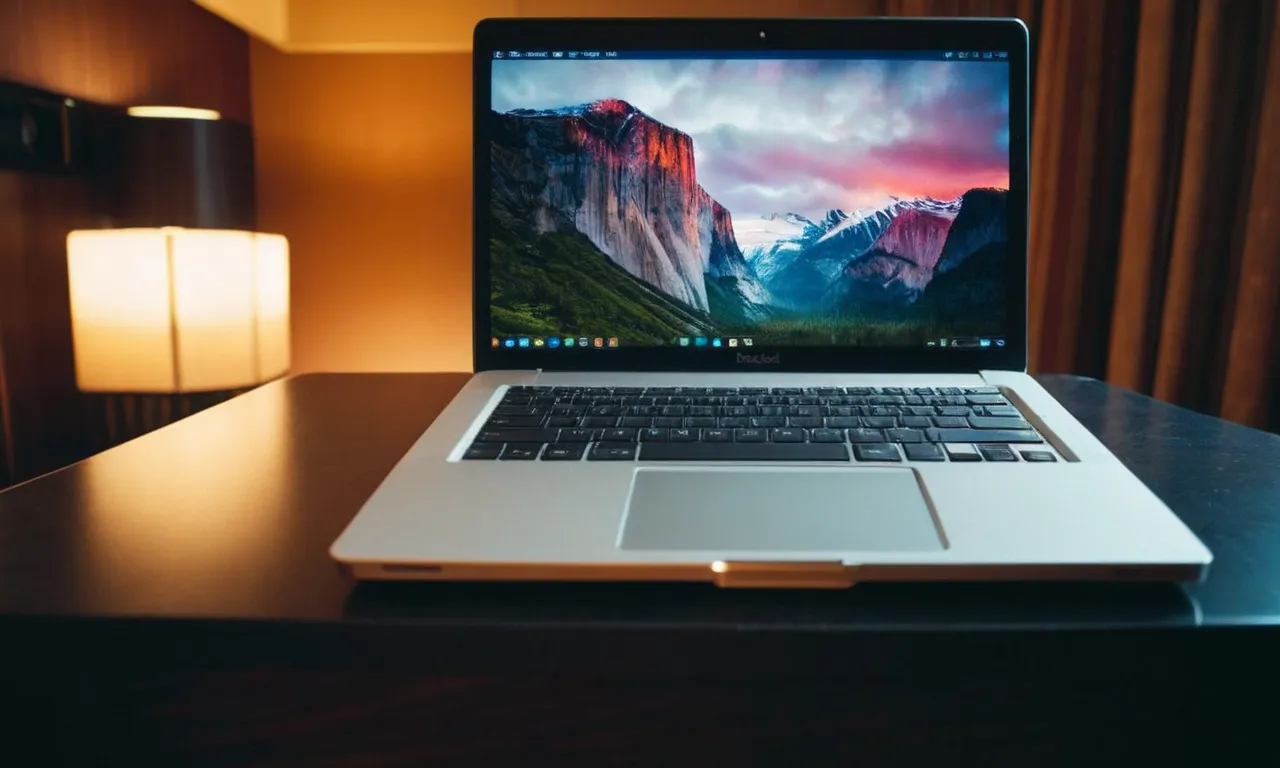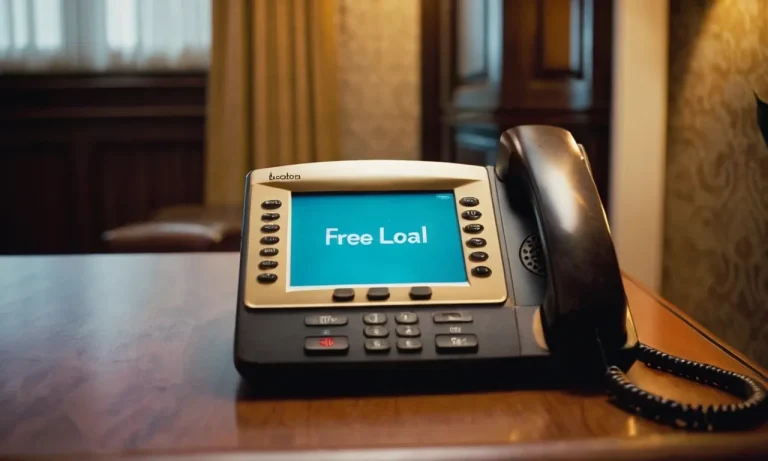How To Bypass Hotel Wi-Fi Restrictions: A Comprehensive Guide
In today’s digital age, staying connected is a necessity, even when you’re on the road. However, many hotels impose frustrating restrictions on their Wi-Fi networks, limiting your online activities and hampering your productivity.
If you’re tired of dealing with these limitations, you’ve come to the right place.
If you’re short on time, here’s a quick answer to your question: To bypass hotel Wi-Fi restrictions, you can use a Virtual Private Network (VPN), a portable Wi-Fi router, or a mobile hotspot. These solutions can help you bypass content filters, access geo-restricted content, and enjoy unrestricted internet access.
In this comprehensive guide, we’ll explore various methods to bypass hotel Wi-Fi restrictions, ensuring you can stay connected and productive during your travels. We’ll cover the pros and cons of each approach, as well as step-by-step instructions to help you implement the solution that best suits your needs.
Understanding Hotel Wi-Fi Restrictions
When you travel and stay at a hotel, one of the essential amenities you expect is reliable Wi-Fi access. However, many hotels impose various restrictions on their Wi-Fi networks, which can be frustrating for guests who rely heavily on internet connectivity.
In this section, we’ll delve into the common restrictions imposed by hotels, the reasons behind these restrictions, and the potential consequences of attempting to bypass them.
Common Restrictions Imposed by Hotels
- Bandwidth throttling: Hotels often limit the available bandwidth to ensure a fair distribution among all guests, resulting in slower internet speeds.
- Content filtering: Some hotels block access to certain websites or online services, such as streaming platforms or gaming sites, to conserve bandwidth or for content control purposes.
- Device limitations: Hotels may restrict the number of devices that can connect to their Wi-Fi network simultaneously, forcing guests to choose which devices to prioritize.
- Login requirements: Many hotels require guests to log in with their room number or a unique code to access the Wi-Fi network, making it challenging to share the connection with others.
Reasons Behind Wi-Fi Restrictions
While these restrictions may seem inconvenient, hotels often have valid reasons for implementing them. One primary reason is bandwidth management. With a large number of guests simultaneously accessing the internet, hotels need to ensure a fair distribution of bandwidth to prevent network congestion and provide a satisfactory experience for all guests.
Additionally, content filtering is sometimes implemented to comply with local laws or to prevent illegal activities, such as piracy or accessing inappropriate content.
Cost-saving measures are another factor driving Wi-Fi restrictions. Providing high-speed internet access to a large number of guests can be expensive, and hotels may limit bandwidth or charge additional fees for premium Wi-Fi services to offset these costs.
According to a study by Hotel WiFi Test, the average cost for hotels to provide Wi-Fi can range from $500 to $1,500 per month, depending on the size of the property and the quality of the service.
Potential Consequences of Bypassing Restrictions
While the temptation to bypass hotel Wi-Fi restrictions may be strong, it’s crucial to understand the potential consequences of doing so. Attempting to circumvent these restrictions could be considered a violation of the hotel’s terms of service or even illegal in some cases.
Hotels may monitor their networks for unauthorized access attempts and take disciplinary actions against guests caught bypassing restrictions, such as revoking internet access or imposing additional charges.
Furthermore, bypassing restrictions could potentially expose your device to security risks or enable illegal activities without your knowledge. Malicious actors may exploit vulnerabilities in the hotel’s network or use it for nefarious purposes, putting your personal information and online safety at risk.
It’s always better to exercise caution and respect the hotel’s policies, even if they may seem inconvenient.
It’s important to remember that while hotel Wi-Fi restrictions can be frustrating, they are often implemented for legitimate reasons, such as bandwidth management, content control, and cost-saving measures. Before attempting to bypass these restrictions, it’s crucial to weigh the potential consequences and prioritize your online safety and legal compliance.
If the restrictions significantly impact your ability to work or access essential services, it may be best to have an open discussion with the hotel staff to explore alternative solutions or consider upgrading to a premium Wi-Fi package if available.
Using a Virtual Private Network (VPN)
One of the most effective ways to bypass hotel Wi-Fi restrictions is by using a Virtual Private Network (VPN). A VPN is a powerful tool that can help you regain your online privacy and freedom while staying at hotels or any other place with restricted internet access.
What is a VPN?
A VPN (Virtual Private Network) is a secure and encrypted connection that allows you to access the internet as if you were connected from a different location. It creates a secure tunnel between your device and a remote server, effectively hiding your online activities and bypassing any restrictions imposed by the network you’re connected to.
😎
Benefits of Using a VPN
- Bypass geo-restrictions and access content that may be blocked or censored in your current location.
- Protect your online privacy by encrypting your internet traffic, making it difficult for anyone to monitor your activities.
- Secure your data and communications, especially when using public Wi-Fi networks, which are often vulnerable to cyber threats.
- Access online services and websites that might be restricted by your hotel’s Wi-Fi network.
Choosing the Right VPN Service
With so many VPN providers available, it’s crucial to choose a reputable and reliable service. Look for VPNs that offer robust encryption, a strict no-logging policy, and a wide range of server locations.
Some popular and highly-rated VPN services include NordVPN, ExpressVPN, and Private Internet Access. 👏
It’s also essential to consider factors like connection speed, compatibility with various devices, and the number of simultaneous connections allowed. Many VPN providers offer free trials or money-back guarantees, which can be helpful in testing the service before committing to a subscription.
Setting Up and Using a VPN
Setting up a VPN is generally straightforward. Most providers offer user-friendly apps for various platforms, such as Windows, macOS, iOS, and Android. Here’s a typical process:
- Subscribe to a VPN service of your choice.
- Download and install the VPN app on your device(s).
- Launch the app and log in with your account credentials.
- Connect to a server location of your choice. Pro tip: For faster speeds, choose a server closer to your physical location.
- That’s it! 🎉 Your internet traffic is now encrypted, and you can bypass any restrictions imposed by the hotel’s Wi-Fi network.
Remember, using a VPN might slightly impact your internet speed, but the benefits of online privacy, security, and unrestricted access often outweigh this minor drawback. So, the next time you’re staying at a hotel with frustrating Wi-Fi restrictions, consider using a VPN to enjoy a seamless and unrestricted online experience.
😎👍
Portable Wi-Fi Routers and Mobile Hotspots
When it comes to bypassing hotel Wi-Fi restrictions, portable Wi-Fi routers and mobile hotspots can be game-changers. These devices allow you to create your own private and secure wireless network, giving you the freedom to access the internet without limitations or monitoring.
Understanding Portable Wi-Fi Routers
Portable Wi-Fi routers are compact devices that can connect to the internet via a wired Ethernet connection or a mobile data plan. They essentially act as a personal wireless router, creating a private Wi-Fi network that you can connect your devices to.
These routers are designed to be travel-friendly and often come with additional features like built-in battery packs and support for multiple wireless standards like 802.11ac.
Benefits of Using a Portable Wi-Fi Router
- Bypass hotel Wi-Fi restrictions and monitoring
- Create a secure and private wireless network
- Connect multiple devices simultaneously
- Enjoy faster internet speeds (depending on the connection source)
- Ideal for travelers and remote workers
According to a recent survey by PCMag, over 60% of frequent travelers prefer using a portable Wi-Fi router to avoid hotel Wi-Fi limitations and ensure secure internet access.
Setting Up a Portable Wi-Fi Router
Setting up a portable Wi-Fi router is relatively straightforward. First, connect the router to a wired Ethernet connection (if available) or insert a SIM card with a mobile data plan. Then, follow the manufacturer’s instructions to configure the router’s settings, including creating a secure Wi-Fi network name (SSID) and password.
Once set up, you can connect your devices to the portable Wi-Fi router’s network and enjoy unrestricted internet access.
Mobile Hotspots: An Alternative Solution
If you don’t want to carry an additional device, mobile hotspots can be a convenient alternative. Many smartphones and tablets now have built-in hotspot functionality, allowing you to share your device’s cellular data connection with other devices.
However, keep in mind that mobile hotspots can consume a significant amount of data, and you may need to purchase a separate data plan or pay extra fees for this feature.
No matter which option you choose, using a portable Wi-Fi router or mobile hotspot can be a game-changer when it comes to bypassing hotel Wi-Fi restrictions. Say goodbye to frustrating limitations and enjoy unrestricted internet access during your travels or remote work sessions.
Just remember to always prioritize security and use a reliable virtual private network (VPN) to protect your online activities.
Other Methods for Bypassing Hotel Wi-Fi Restrictions
Using a Proxy Server
One effective method for bypassing hotel Wi-Fi restrictions is to use a proxy server. A proxy server acts as an intermediary between your device and the internet, masking your IP address and allowing you to access websites or services that may be blocked by the hotel’s network.
There are numerous free and paid proxy services available online, such as HideMyAss and Private Internet Access. However, it’s important to note that not all proxy servers are secure or reliable, so it’s crucial to choose a reputable service.
Additionally, some hotels may have measures in place to detect and block proxy connections.
Exploring Browser Extensions and Add-ons
Browser extensions and add-ons can also help you bypass hotel Wi-Fi restrictions. These tools often work by encrypting your internet traffic or providing a virtual private network (VPN) connection. Popular options include ExpressVPN, NordVPN, and Hotspot Shield.
While many of these services offer free versions, the paid versions typically provide faster speeds, better security, and more features. It’s worth noting that some hotels may block or restrict the use of certain VPN services, so you might need to try different options.
Ethical Hacking Techniques (with a disclaimer)
Disclaimer: The techniques discussed in this section should only be used for educational purposes and with explicit permission from the network owner. Unauthorized access or hacking attempts may be illegal and can result in severe consequences.
For those with advanced technical skills and a deep understanding of network security, ethical hacking techniques can potentially be used to bypass hotel Wi-Fi restrictions. These methods may involve exploiting vulnerabilities in the hotel’s network infrastructure or using specialized tools to circumvent security measures.
However, it’s crucial to emphasize that these techniques should only be attempted with the explicit permission of the network owner and for legitimate purposes, such as security testing or research.
Some common ethical hacking techniques that could theoretically be used to bypass hotel Wi-Fi restrictions include:
- Network sniffing and packet analysis
- Wireless network cracking and penetration testing
- Exploitation of vulnerabilities in network devices or software
It’s important to note that these techniques require a high level of expertise and should never be attempted without proper authorization, as they could be considered illegal and lead to severe consequences, including fines or even imprisonment.
Conclusion
Bypassing hotel Wi-Fi restrictions is a common concern for travelers who rely on a stable and unrestricted internet connection. By implementing the solutions outlined in this guide, you can regain control over your online activities and enjoy seamless connectivity during your hotel stays.
Remember, while bypassing restrictions may be tempting, it’s crucial to respect the hotel’s policies and terms of service. Always prioritize legal and ethical methods to avoid potential consequences. With the right approach, you can strike a balance between maintaining your online freedom and respecting the rules of your accommodation provider.
Whether you choose to use a VPN, a portable Wi-Fi router, or explore other methods, this comprehensive guide has provided you with the knowledge and tools necessary to overcome hotel Wi-Fi restrictions. Stay connected, stay productive, and enjoy your travels to the fullest.








